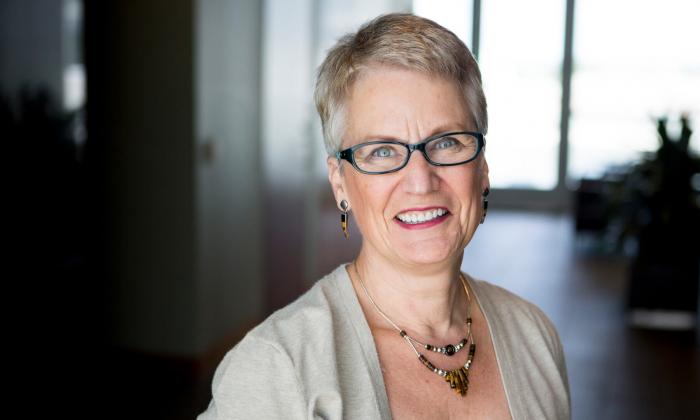
Social media has changed all of our lives, for better and worse.
For me, it’s led to new habits, like spending part of my day on Twitter. Concision not being my strong suit, this is a strange and wondrous development. But Twitter is the place to go when you want to know about breaking news in real time and, lately, it’s also a place where stories unfold before your eyes.
This week one of the stories came from a professor in Tennessee. He asked for comments in support of his 11-year-old daughter whose teacher removed her from class and sent her to spend the day in the principal’s office. Her offense? She shouted, “Stop it!” to a group of classmates who were giving the Nazi salute.
Background followed: The “Sieg Heil” craze at her school began when a teacher assigned a student to play the role of Hitler—in costume and with the salute—for a class project. This was back in April, and it was only the first act in an ongoing saga that was to culminate with the project’s “Living History” performance in May. Over the course of the last five weeks, children have been giving Nazi salutes in the hallways and at recess. The professor’s daughter spoke out, objecting to the salute and to hearing “Sieg Heil.” It didn’t take kids long to figure out that this was a sure-fire way to taunt her.
She brought her concerns to her teachers, who basically told her to be quiet, “not address it again” and, ultimately, found her behavior “disrespectful.”
Just to recap: A teacher decides that re-enacting Nazi gestures is a worthy instructional activity. When children perform the salute outside of class and in non-instructional contexts, teachers ignore the behavior. Faced with an 11-year-old girl standing up against it, they deem her to be the problem.
At this point, you’re probably wondering why I spend time on Twitter at all. It’s partly because of what followed: an outpouring of support for the girl and advice for her dad. I hope it helped.
But hearing about episodes like this helps me in my job, too, which is to think about how to change what happens in schools when even well-intentioned instructional strategies can go awry, and how to bring new perspectives to educators.
And that’s where Twitter can really change our lives. As you can read in this issue’s cover story, a number of social justice-minded educators have emerged on the platform—and others, like Instagram—as leaders and influencers. In the past, teachers who wanted to lead became administrators in the hopes that they could affect a single school. Today, teachers are staying in the classroom and becoming thought leaders for thousands of other educators around the country.
And in some cases, social media phenomena like the “Me and White Supremacy” challenge touch so many people that, inevitably, educators become part of it too—and end up changing their thinking and teaching because of it.
Don’t mistake me: I’m not a Pollyanna when it comes to technology. Social media is too often used to spread hate and to generate discord. But it—and many new technologies—can also be harnessed to serve our social justice goals. In “The Subscribed Classroom,” you can see how educators like you are using podcasts to explore contemporary issues and other people’s lives.
So, this summer, I hope you’ll spend some time with us, online, reading about ways to transform your school and learning from each other.
“A voice is a human gift; it should be cherished and used, to utter fully human speech as possible. Powerlessness and silence go together.” —Margaret Atwood